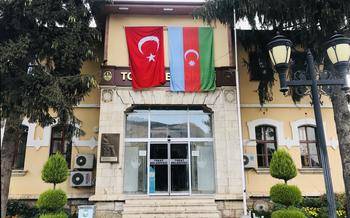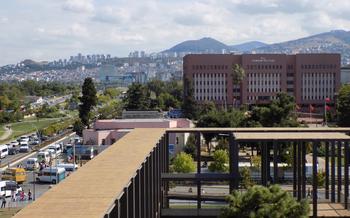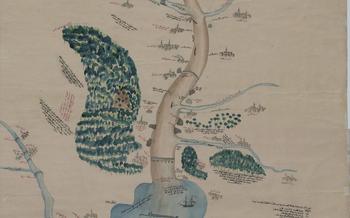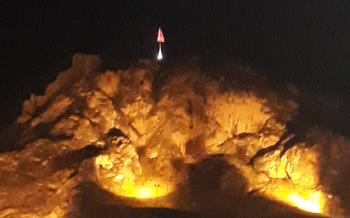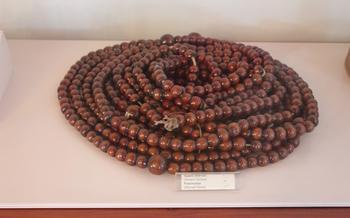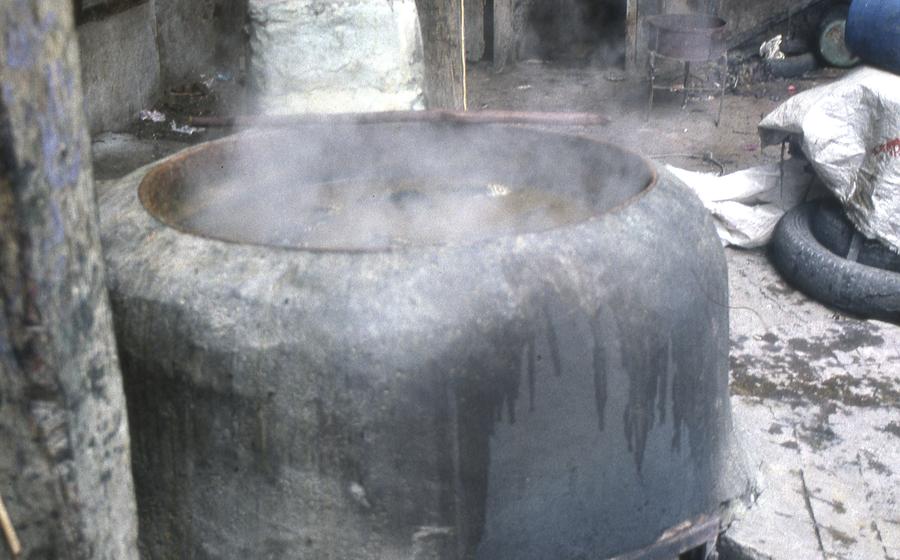
Niksar Ayvaz Water
- The Antiquity of Niksar Ayvaz Water
- Chemical Composition and Mineral Content
- Therapeutic Properties and Health Benefits
- Historical Significance of the Site
- Religious Beliefs and Rituals
- Modern-Day Developments and Facilities
- Local Culture and Traditions
- Accommodations and Dining:
- Transportation and Accessibility
- Activities and Attractions Nearby
- Safety and Precautions
- Budget and Cost Considerations
- Packing and Essentials
- Etiquette and Cultural Customs
- Insider Tip: Unveiling Hidden Gems and Local Secrets
The Antiquity of Niksar Ayvaz Water
Niksar Ayvaz Water boasts a rich history that dates back to ancient times. According to legend, the water was discovered by a Roman soldier named Ayvaz, who was miraculously healed of his wounds after bathing in its waters. Since then, the water has been revered for its healing properties and has attracted visitors from far and wide.
Archaeological excavations in the area have uncovered ancient ruins and artifacts, including Roman baths and aqueducts, suggesting that the water was already known and used in Roman times. Over the centuries, the water has been mentioned in various historical texts and travelogues, further cementing its reputation as a place of healing and rejuvenation.
Chemical Composition and Mineral Content
The Niksar Ayvaz Water is renowned for its unique blend of minerals and elements, which give it its distinctive taste and therapeutic properties. The water contains high levels of calcium, magnesium, sodium, potassium, and bicarbonate, as well as trace amounts of other minerals such as iron, zinc, and copper. This unique composition contributes to the water's therapeutic effects and has been the subject of numerous scientific studies.
Researchers have found that the Niksar Ayvaz Water has a number of beneficial properties, including the ability to alleviate skin conditions such as eczema and psoriasis, treat digestive ailments and constipation, and reduce joint pain and rheumatism. The water's high mineral content also makes it beneficial for weight management and detoxification.
In comparison to other mineral waters, the Niksar Ayvaz Water stands out due to its unique blend of minerals and its high concentration of calcium and magnesium. These minerals are essential for maintaining bone health, regulating muscle function, and supporting the nervous system. The water's high bicarbonate content also helps to neutralize stomach acid and improve digestion.
Overall, the chemical composition and mineral content of the Niksar Ayvaz Water make it a valuable natural resource with a wide range of therapeutic properties.
Therapeutic Properties and Health Benefits
The Niksar Ayvaz Water has been renowned since ancient times for its therapeutic properties and health benefits. It is believed to have a unique blend of minerals and elements that contribute to its healing powers. The water is particularly effective in alleviating skin conditions such as eczema and psoriasis, providing relief from itching and inflammation. It is also beneficial for treating digestive ailments and constipation, as it helps to improve digestion and regulate bowel movements.
Moreover, the water is known for its positive effects on joint pain and rheumatism, reducing stiffness and pain. It is also believed to aid in weight management and detoxification, promoting overall well-being. Scientific studies have been conducted to analyze the water's composition and its effects on various health conditions. These studies have confirmed the presence of essential minerals and trace elements, including calcium, magnesium, and potassium, which contribute to the water's therapeutic properties.
Historical Significance of the Site
The Niksar Ayvaz Water has been a site of historical significance for centuries, with evidence of human activity dating back to ancient times. The area surrounding the water was once home to the Roman city of Neocaesarea, and archaeological excavations have revealed the remains of Roman baths and other structures that suggest the water was already known for its therapeutic properties during that period.
In the Ottoman era, the water gained further prominence, and several Ottoman sultans visited the site to bathe and seek its healing benefits. During the reign of Sultan Suleyman the Magnificent, a magnificent bathhouse was constructed at the site, which still stands today and is a testament to the historical importance of the water.
Throughout history, the Niksar Ayvaz Water has played a significant role in local culture and traditions. It has been a place of pilgrimage for those seeking healing and rejuvenation, and religious ceremonies and festivals have been held in honor of the water for centuries. The water has also been integrated into local folklore and legends, further solidifying its place in the region's cultural heritage.
Religious Beliefs and Rituals
Niksar Ayvaz Water holds deep religious significance for locals and visitors alike. Legends and stories of saints and miracles associated with the water have been passed down through generations. Pilgrims from near and far flock to the site to seek healing and spiritual renewal. Rituals and ceremonies are performed at the water, invoking blessings and prayers for good health, prosperity, and happiness. Religious festivals and celebrations are held in honor of the water, attracting thousands of devotees who come to pay homage and partake in the sacred rituals. The water is believed to possess mystical powers and is revered as a symbol of divine grace and healing.
Modern-Day Developments and Facilities
In recent years, Niksar Ayvaz Water has undergone significant modernization and development. The once humble hot springs have been transformed into a modern-day wellness destination, complete with upgraded infrastructure and amenities. New bathhouses and pools have been constructed, offering visitors a range of options for relaxation and rejuvenation. These facilities are equipped with state-of-the-art technology, ensuring a comfortable and hygienic bathing experience.
In addition to traditional bathing, the site now offers a variety of spa treatments and wellness programs. Visitors can indulge in massages, body wraps, and facials, all designed to enhance their overall well-being. For those seeking a more comprehensive experience, there are specialized programs focused on detoxification, weight management, and stress reduction.
To cater to the needs of visitors, a range of accommodation options has sprung up near the water. From budget-friendly guesthouses to luxurious resorts, there is something to suit every taste and budget. Many of these accommodations offer stunning views of the water and the surrounding landscape, making them an ideal base for exploring the area.
Local Culture and Traditions
The Niksar Ayvaz Water is deeply intertwined with the local culture and traditions of Tokat. For centuries, the water has been an integral part of daily life for the people of the region. Locals use the water for cooking, drinking, and healing purposes. It is believed to have therapeutic properties that can alleviate various ailments and promote overall well-being.
The water is also a central feature of local festivals and celebrations. Every year, the Niksar Ayvaz Water Festival is held to honor the water's healing powers and celebrate its cultural significance. The festival features traditional music, dance, and food, as well as religious ceremonies and rituals.
Stories and legends about the water have been passed down through generations, adding to its mystique and allure. Locals believe that the water has magical healing properties and that it can grant wishes to those who drink it or bathe in it. These stories and beliefs have shaped the local culture and traditions, creating a deep reverence for the water among the people of Tokat.
Accommodations and Dining:
A visit to Niksar Ayvaz Water can be complemented by the rich culinary offerings of the region. Tokat is renowned for its traditional Turkish cuisine and local specialties. Visitors can savor delectable dishes like Tokat kebab, keşkek, and yufka böreği. Restaurants and cafes near the water provide panoramic views, allowing diners to enjoy their meals while admiring the beauty of the surroundings. For a truly authentic dining experience, travelers can venture into the narrow streets of Tokat and explore hidden gems offering mouthwatering local delicacies.
Transportation and Accessibility
Reaching Niksar is relatively straightforward, with several transportation options available. Public transportation is a convenient choice, with buses departing regularly from major cities like Ankara and Sivas. For those who prefer a more flexible itinerary, rental cars are readily available, allowing you to explore the region at your own pace.
If you opt for a guided tour, you'll benefit from the expertise of local operators who can arrange transportation, provide historical context, and suggest additional attractions in the area.
Once in Niksar, road conditions are generally good, making it easy to navigate by car or taxi. Ample parking facilities are available near the Ayvaz Water, ensuring a hassle-free visit.
The best time to visit Niksar is during the spring and autumn, when the weather is pleasant for outdoor activities. Summer months can be hot and crowded, while winters can be chilly and snowy.
Activities and Attractions Nearby
Beyond the healing waters of Niksar Ayvaz, Tokat offers a wealth of historical and natural attractions that beckon travelers to explore. Immerse yourself in the rich history of the region by visiting Tokat Castle, a magnificent 14th-century fortress that stands as a testament to the city's past. Wander through the atmospheric streets of the old town, where traditional Ottoman-style houses line cobbled lanes, transporting you back in time.
For those seeking natural wonders, Tokat has plenty to offer. Marvel at the cascading waters of Zile Falls, a breathtaking natural spectacle that plunges into a deep canyon. Explore the stunning canyons and rock formations of the Ballıca Valley, a haven for nature enthusiasts and adventure seekers.
To delve deeper into the region's rich culture, visit the Tokat Museum, which houses an impressive collection of artifacts and exhibits that showcase the city's history and heritage. Discover the vibrant local traditions at the Tokat Bazaar, where you can haggle for unique souvenirs and sample delicious Turkish delights.
Enrich your journey with outdoor activities in the surrounding landscapes. Embark on a scenic hike through the lush forests of the Tokat Mountains, where you can breathe in the fresh air and soak in the tranquility of nature. Cast your line in the crystal-clear waters of the Yeşilırmak River, a popular spot for fishing enthusiasts. Camp under the stars in one of the designated campsites, allowing yourself to be mesmerized by the beauty of the night sky.
Safety and Precautions
When visiting Niksar Ayvaz Water, it is essential to prioritize safety and take necessary precautions. Here are some tips to ensure a safe and enjoyable experience:
-
General Safety: Turkey is generally a safe country for travelers, but it's always wise to be cautious. Keep your valuables secure and be aware of your surroundings, especially in crowded areas.
-
Water Safety: The water at Niksar Ayvaz Water is generally safe for bathing, but it's advisable to avoid swallowing it. If you have any concerns about the water's quality, consult with local authorities or health professionals.
-
Scams: Be wary of individuals offering unsolicited services or products. Always verify the authenticity of tour operators and guides before engaging with them.
-
Cultural Sensitivity: Respect local customs and religious beliefs. Dress modestly and behave respectfully when visiting religious sites or interacting with locals.
-
Emergency Contacts: Keep emergency contact information handy, including the local police station and hospital. Learn a few basic Turkish phrases for emergencies.
Budget and Cost Considerations
A visit to Niksar Ayvaz Water can be tailored to fit different budget levels. Entrance fees to the bathing facilities are reasonable, and there are various options for accommodation and dining to suit all pockets. Budget travelers can opt for hostels or guesthouses, while those seeking a more luxurious experience can choose from a range of hotels and resorts.
When it comes to dining, there are plenty of affordable options available, from traditional Turkish cuisine to international fare. For a truly authentic experience, try the local restaurants offering panoramic views of the water. Transportation to Niksar is also relatively inexpensive, with public transportation options and rental cars available.
To save money, consider visiting during the off-season, when prices are generally lower. You can also pack your own food and drinks to avoid dining expenses. If you're on a tight budget, remember that some activities and attractions in the area, such as hiking and camping, are completely free of charge.
Packing and Essentials
When packing for a trip to Niksar Ayvaz Water, it's important to consider the activities you plan to engage in and the local climate. Here's a list of essential items to bring:
-
Comfortable clothing and footwear: Opt for loose-fitting, lightweight clothing that allows for easy movement. Pack sturdy, water-resistant hiking boots or sandals if you plan on exploring the surrounding nature.
-
Sun protection: The Turkish sun can be intense, so pack a hat, sunglasses, and high-SPF sunscreen to protect yourself from harmful UV rays.
-
Insect repellent: To keep pesky mosquitoes and other insects at bay, pack an effective insect repellent.
-
Camera: Capture your memories of this unique destination with a camera or smartphone.
-
Water bottle: Stay hydrated by bringing your own reusable water bottle.
-
Small backpack: A small backpack is perfect for carrying your essentials while exploring the area.
-
Cash: While some places may accept cards, it's always a good idea to have some cash on hand for small purchases or local markets.
-
Personal toiletries: Pack your own toiletries to ensure you have your preferred brands and products.
-
Universal adapter: If you're traveling from abroad, pack a universal adapter to ensure you can charge your electronics.
-
Travel documents: Keep your passport, visa, and other travel documents organized and easily accessible.
-
First-aid kit: Pack a small first-aid kit with basic supplies to handle minor injuries or ailments.
-
Leave behind valuables: To avoid the risk of theft or loss, leave behind valuable jewelry or expensive items.
Etiquette and Cultural Customs
When visiting the Niksar Ayvaz Water, it is important to be respectful of local customs and traditions. Dress modestly and avoid wearing revealing clothing. Be mindful of your behavior and avoid engaging in loud or disruptive activities. When interacting with locals, be friendly and respectful, and try to learn a few basic Turkish phrases. Tipping is customary in Turkey, so be sure to tip your guides, drivers, and other service providers. By observing local etiquette and customs, you will show respect for the Turkish culture and enhance your overall experience.
Insider Tip: Unveiling Hidden Gems and Local Secrets
Beyond the main attractions, Niksar Ayvaz Water offers hidden gems and off-the-beaten-path spots waiting to be discovered. For adventurous travelers seeking unique experiences, exploring the surrounding countryside reveals enchanting waterfalls, secluded canyons, and picturesque villages untouched by mass tourism.
Indulge in the local culture by visiting traditional markets, where you can barter for handmade crafts, fresh produce, and delicious street food. Engage with friendly locals, who are always eager to share stories, legends, and insider tips about the region.
To escape the crowds and immerse yourself in the tranquility of nature, visit the water during the shoulder seasons of spring and autumn. The weather is pleasant, and the scenery is breathtaking, with vibrant wildflowers and golden leaves adding to the charm.
Remember to pack comfortable shoes, as exploring the area on foot is the best way to uncover its hidden treasures. Don't forget your camera to capture every magical moment of your journey.
Embrace the local customs and traditions by dressing modestly and behaving respectfully. Engage in conversations with locals, and don't be afraid to ask for directions or recommendations. Their warmth and hospitality will make your visit even more memorable.
With a little exploration and an open mind, you'll discover the true essence of Niksar Ayvaz Water and create memories that will last a lifetime.





